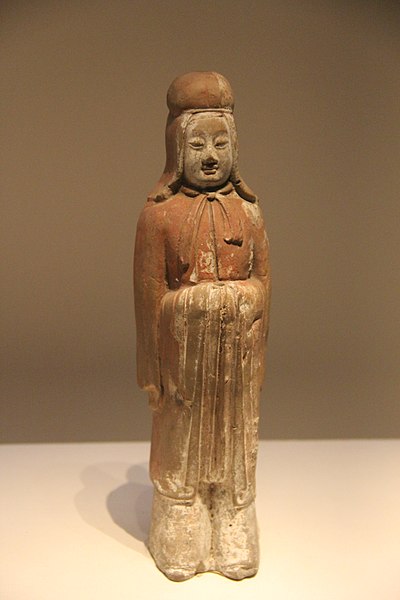Emperor Hui of Jin, personal name Sima Zhong (司馬衷), courtesy name Zhengdu (正度), was the second emperor of the Jin dynasty (266–420). Emperor Hui was a developmentally disabled ruler, and throughout his reign, there was constant internecine fighting between regents, imperial princes, and his wife Empress Jia Nanfeng for the right to control him, causing great suffering for the people and greatly undermining the stability of the Western Jin dynasty, eventually leading to rebellions of the Five Barbarians that led to Jin's loss of northern and central China and the establishment of the competing Sixteen Kingdoms. He was briefly deposed by his granduncle Sima Lun, who usurped the throne himself, in 301, but later that year was restored to the throne and continued to be the emperor until January 307, when he was poisoned, likely by the regent Sima Yue.
Emperor Hui of Jin
The Jin dynasty or the Jin Empire, sometimes distinguished as the Sima Jin (司馬晉) or the Two Jins (兩晉), was an imperial dynasty in China that existed from 266 to 420. It was founded by Sima Yan, eldest son of Sima Zhao, who had previously been declared the King of Jin. There are two main divisions in the history of the dynasty. The Western Jin (266–316) was established as the successor to Cao Wei after Sima Yan usurped the throne from Cao Huan and took the title of Emperor Wu. The capital of the Western Jin was initially in Luoyang, though it later moved to Chang'an. In 280, after conquering Eastern Wu, the Western Jin ended the Three Kingdoms period and reunited China proper for the first time since the end of the Han dynasty.
Western Jin-era porcelain figurine
Yue ware with motif, 3rd century CE, Western Jin, Zhejiang.
Pottery tower, Western Jin, 265–317 CE.
Celadon lion-shaped bixie, Western Jin, 265–317 CE.





